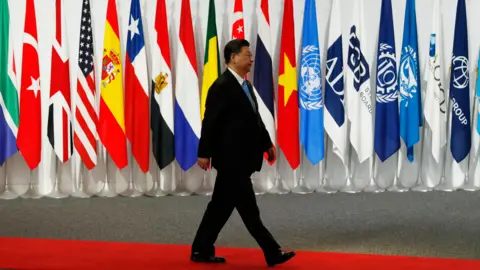In a notable development in the global trade of plastic waste, Malaysia has announced a definitive ban on shipments of plastic refuse from the United States. This decision comes amidst a growing concern over the environmental impact of waste imports and follows Malaysia's standing as the leading recipient of discarded plastic from wealthy nations. In the previous year alone, over 35,000 tons of plastic waste were sent from the U.S. to Malaysia, highlighting America's increasing reliance on external countries to handle its debris.
The Malaysian government, under the guidance of Environment Minister Nik Nazmi, has taken a firm stance against being perceived as "the world's rubbish bin." This announcement follows past incidents where Malaysia has confiscated containers filled with hazardous materials misrepresented as recyclable goods from the U.S. The trade of waste has been significantly affected since China's decision in 2018 to curtail imports of foreign waste, which pushed many developed countries, like the U.S., to scramble for alternative destinations for their plastic pollution.
Recycling rates in the United States remain alarmingly low, with less than 10% of plastic waste being effectively recycled. The complexities involved in recycling, including contamination issues, have hindered efficient processing, forcing the nation to confront its waste management policies. Previously, many Western countries exported their discarded plastics with little oversight, but the landscape is changing as more nations like Malaysia assert their commitment to rejecting foreign waste. This shift signals a crucial turning point for global waste management and leads to broader conversations on sustainability and domestic waste solutions.
The Malaysian government, under the guidance of Environment Minister Nik Nazmi, has taken a firm stance against being perceived as "the world's rubbish bin." This announcement follows past incidents where Malaysia has confiscated containers filled with hazardous materials misrepresented as recyclable goods from the U.S. The trade of waste has been significantly affected since China's decision in 2018 to curtail imports of foreign waste, which pushed many developed countries, like the U.S., to scramble for alternative destinations for their plastic pollution.
Recycling rates in the United States remain alarmingly low, with less than 10% of plastic waste being effectively recycled. The complexities involved in recycling, including contamination issues, have hindered efficient processing, forcing the nation to confront its waste management policies. Previously, many Western countries exported their discarded plastics with little oversight, but the landscape is changing as more nations like Malaysia assert their commitment to rejecting foreign waste. This shift signals a crucial turning point for global waste management and leads to broader conversations on sustainability and domestic waste solutions.






















